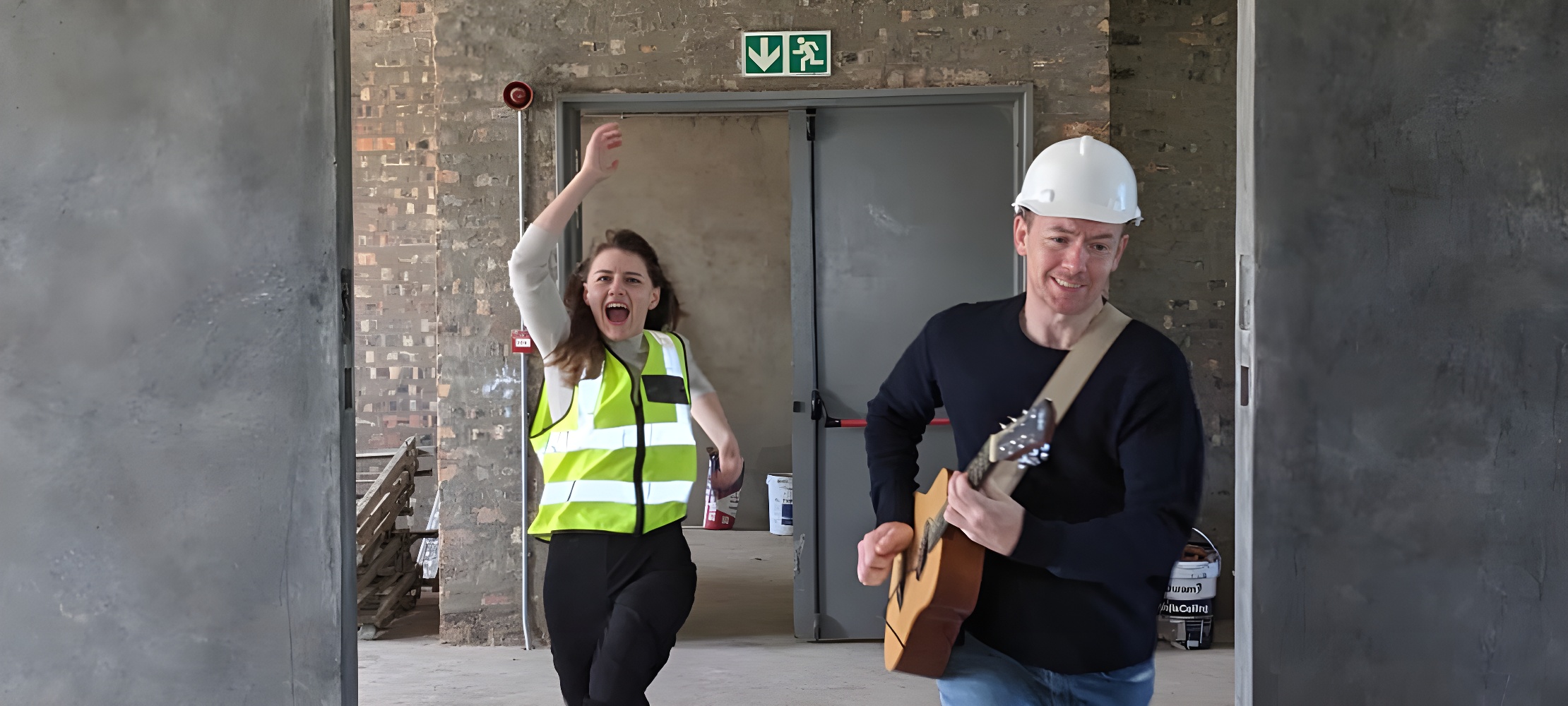Emergency Workshop!
Interactive lecture performance/ workshop
Marie HAHNE as Performer & Gordon EVANS as Musician
No restrictions, but the story touches on topics of discrimination and racism. Violent and discriminatory language will not be used.
We are living in uncertain times; wars, racial and social inequality, natural and human catastrophes. It’s our nature to want to protect ourselves and prepare for the worst. We practice earthquake and fire drills from playschool on, take self-defence classes, install security systems, and do yoga to combat back pain when we get old. These exercises are supposed to ease our minds and make us feel in charge for the moment when catastrophes strike.
From the 9th until the 12th of October, Marie Hahne and Gordon Evans will present a performance piece, based on W.E.B. Du Bois’s The Comet that blurs the lines between lecture, interactive performance and Emergency Workshop.
In W.E.B. Du Bois’s short story, the world is struck by a catastrophic event when a comet passes near Earth, releasing poisonous gases that kill the population. The story centres on Jim and Julia, who both believe they are the only survivors in New York City. As they wander the empty streets, they cross racial and social boundaries, forming a brief bond as equals. But has the preceding social order truly been wiped out?
CREATIVE TEAM
Marie Hahne
Born in Berlin, Germany, in 1993, Marie Hahne studied Theatre at Weißensee University of the Arts Berlin and Contemporary Art at Hiroshima City University in Japan before relocating to Wellington, South Africa.
Marie Hahne defines her artistic practice as a hybrid translation—a dynamic process of shifting between mediums and perspectives.
Her work explores themes of repetition and ritual, absurdity and logic, play and discovery, using storytelling, movement, voice, objects and visual elements to create immersive spaces for interaction and exploration. Her playgrounds and interactive performances invite audiences to step closer, listen, touch, explore and transform passive observation into active engagement.
Gordon Evans
Born in Humansdorp, in the Eastern Cape, in 1987, Gordon Evans studied architecture at the Nelson Mandela Metropolitan University. Eager to travel and see more, he moved to China for three years, before taking a job in an office of architecture, in Osaka, Japan, for the next seven, which included initial explorations into stage and set design.
The love for music came along from high school, as the original bassist for Afrikaans band Glaskas. He tries to include music in his life where possible but is most keenly interested in where stories come from, be it through static, built architectural form, or the fleeting moments and language of a song.
